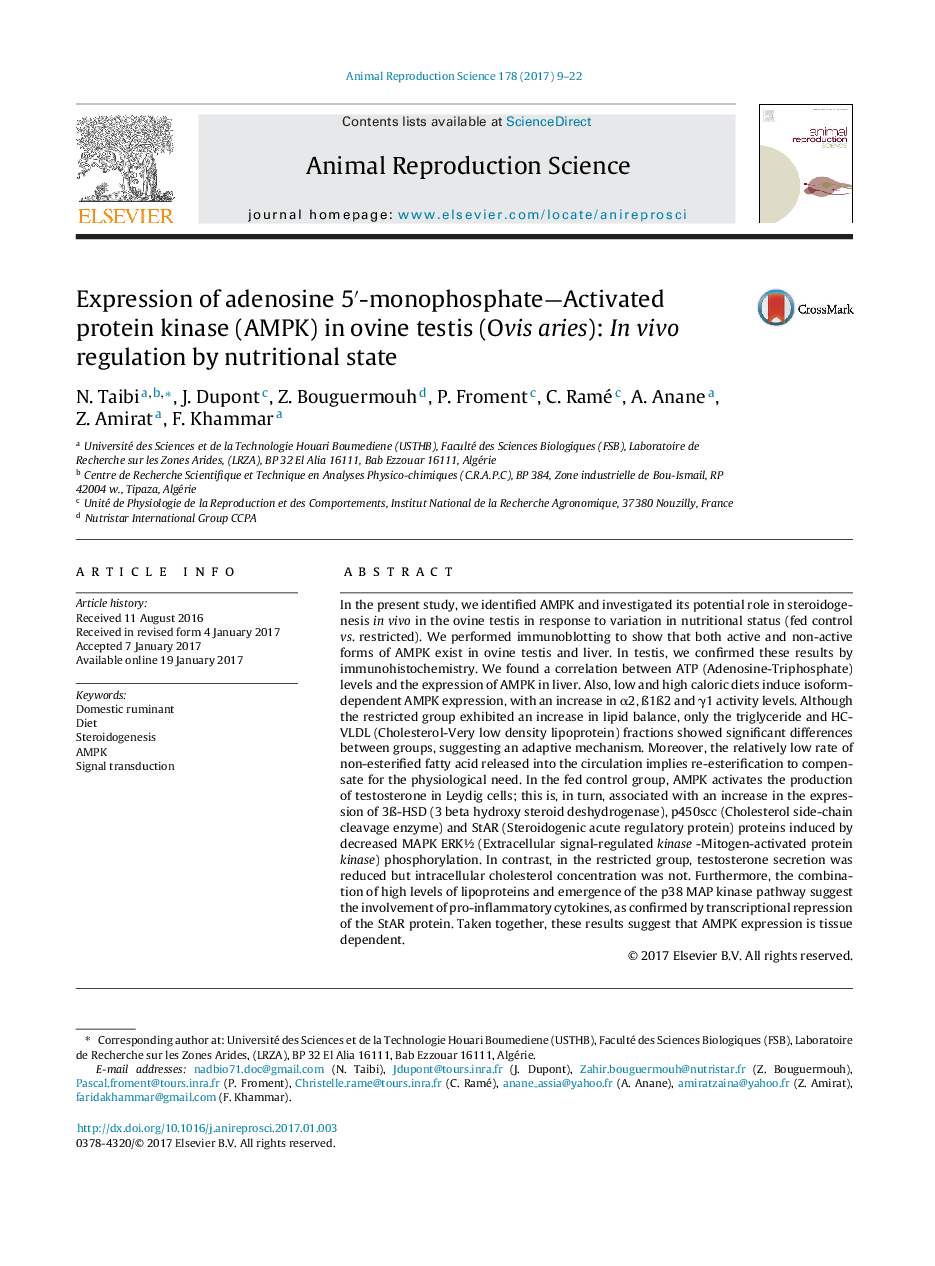| Article ID | Journal | Published Year | Pages | File Type |
|---|---|---|---|---|
| 5520409 | Animal Reproduction Science | 2017 | 14 Pages |
â¢pAMPK was identified in Leydig cells even in the presence of high ATP levels.â¢Nutritional phases have induced an isoforms-dependent AMPK with an increase in α2, Ã1Ã2 and γ1.â¢Restriction diet had no effect on pAMPK expression in liver.â¢High level of lipoproteins according to restriction diet probably induce IL-1 that act as transcriptional repressors of the StAR protein.â¢Highlighting two signaling pathways p38 and p44/42 MAPK.
In the present study, we identified AMPK and investigated its potential role in steroidogenesis in vivo in the ovine testis in response to variation in nutritional status (fed control vs. restricted). We performed immunoblotting to show that both active and non-active forms of AMPK exist in ovine testis and liver. In testis, we confirmed these results by immunohistochemistry. We found a correlation between ATP (Adenosine-Triphosphate) levels and the expression of AMPK in liver. Also, low and high caloric diets induce isoform-dependent AMPK expression, with an increase in α2, Ã1Ã2 and γ1 activity levels. Although the restricted group exhibited an increase in lipid balance, only the triglyceride and HC-VLDL (Cholesterol-Very low density lipoprotein) fractions showed significant differences between groups, suggesting an adaptive mechanism. Moreover, the relatively low rate of non-esterified fatty acid released into the circulation implies re-esterification to compensate for the physiological need. In the fed control group, AMPK activates the production of testosterone in Leydig cells; this is, in turn, associated with an increase in the expression of 3Ã-HSD (3 beta hydroxy steroid deshydrogenase), p450scc (Cholesterol side-chain cleavage enzyme) and StAR (Steroidogenic acute regulatory protein) proteins induced by decreased MAPK ERK½ (Extracellular signal-regulated kinase -Mitogen-activated protein kinase) phosphorylation. In contrast, in the restricted group, testosterone secretion was reduced but intracellular cholesterol concentration was not. Furthermore, the combination of high levels of lipoproteins and emergence of the p38 MAP kinase pathway suggest the involvement of pro-inflammatory cytokines, as confirmed by transcriptional repression of the StAR protein. Taken together, these results suggest that AMPK expression is tissue dependent.
